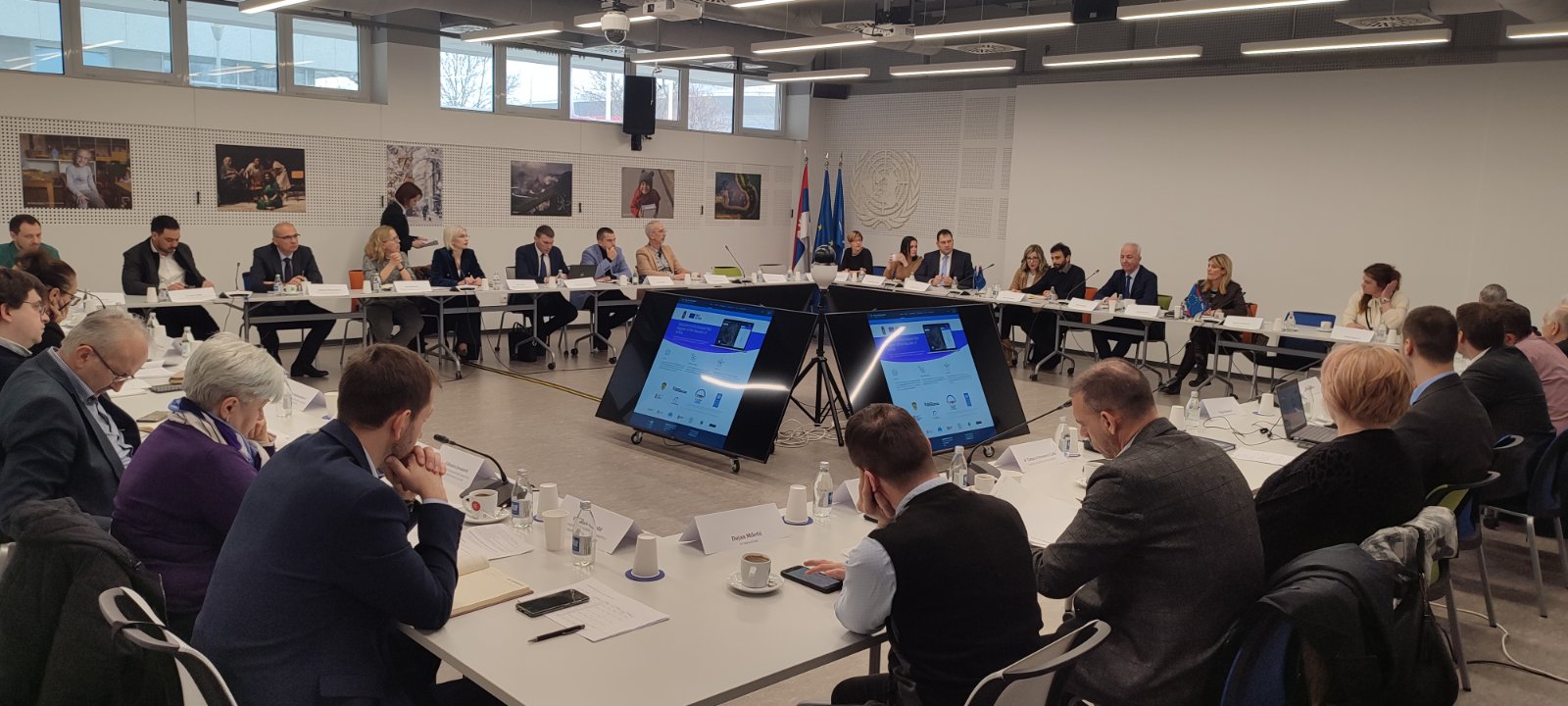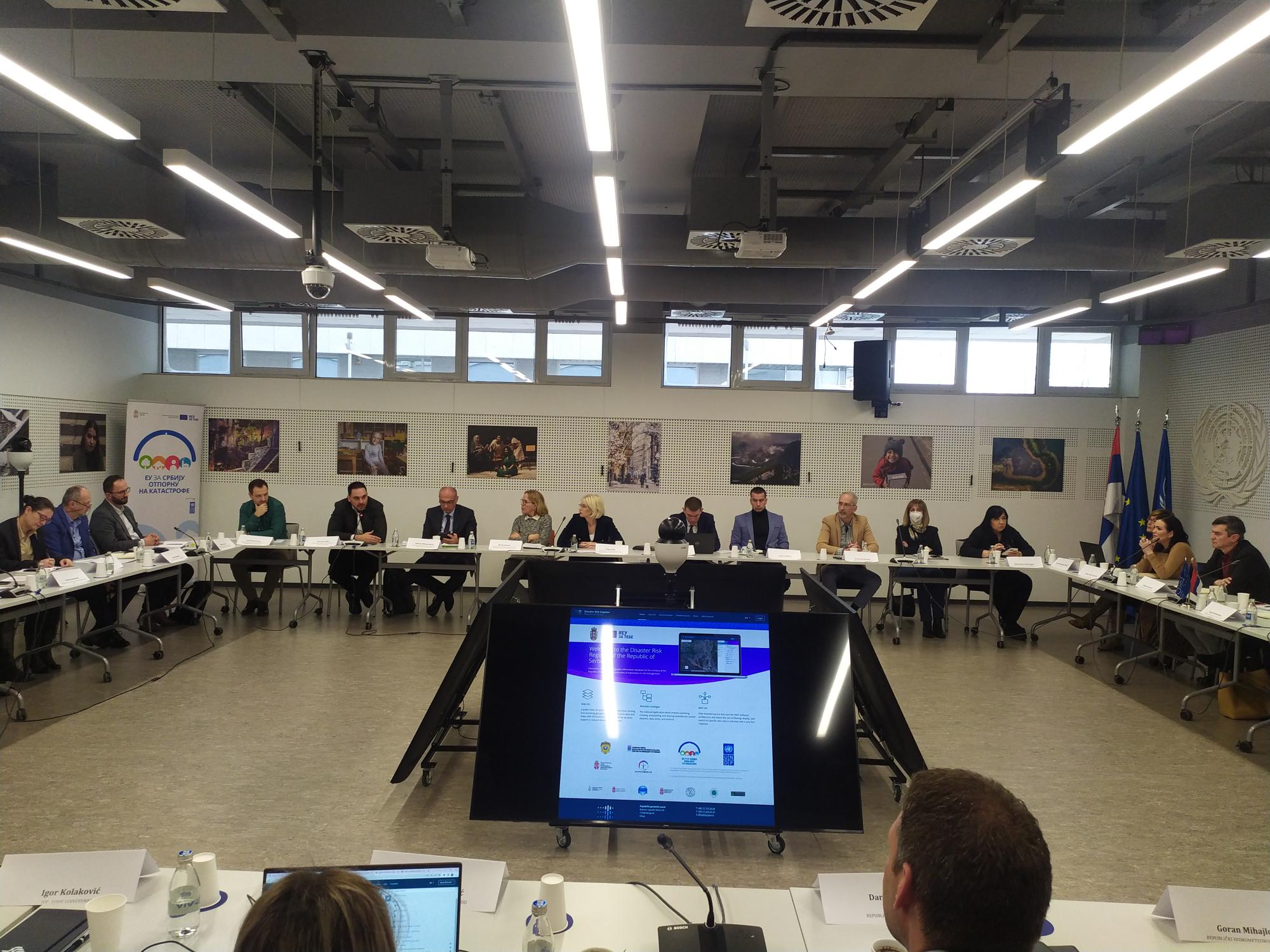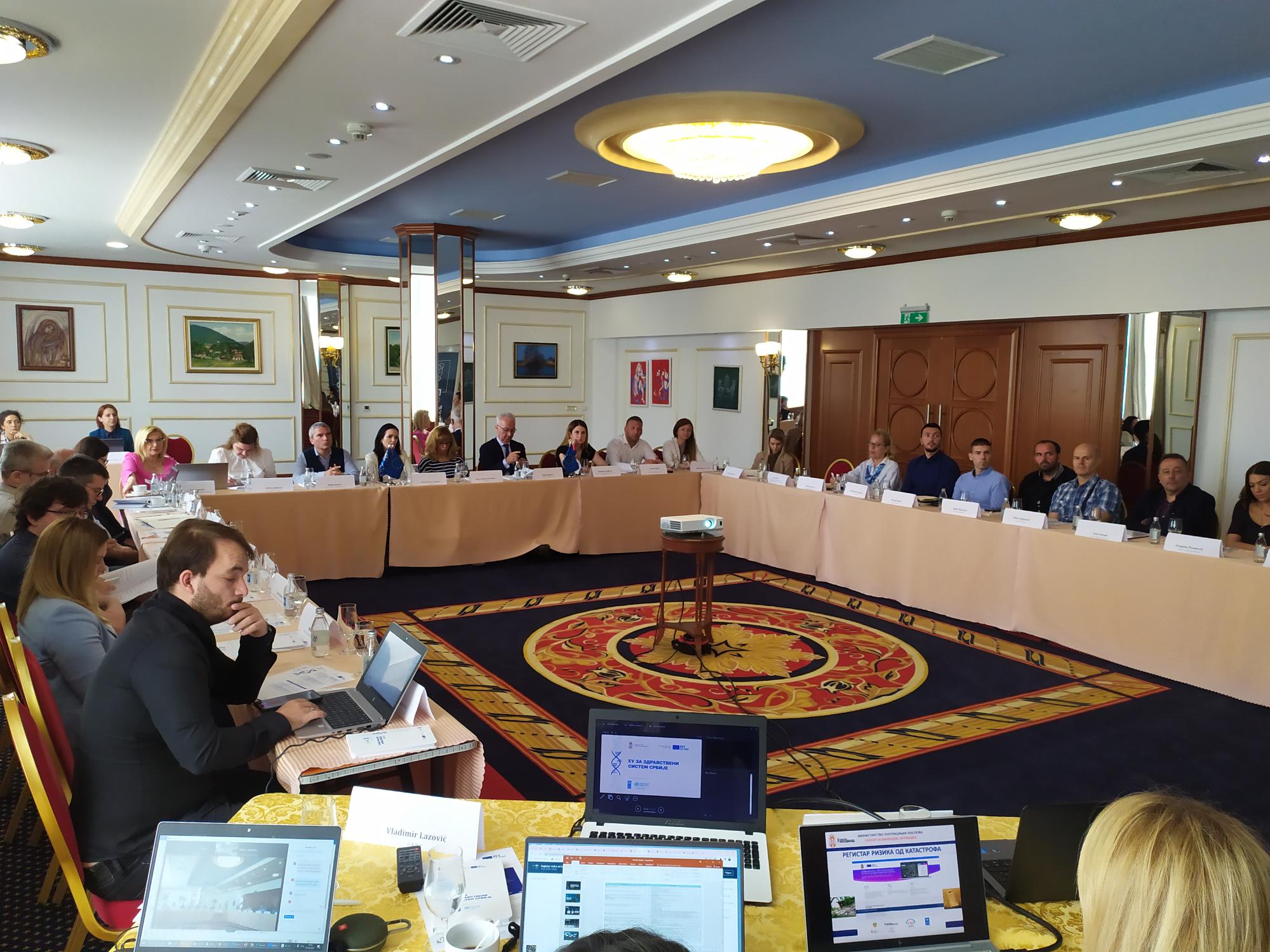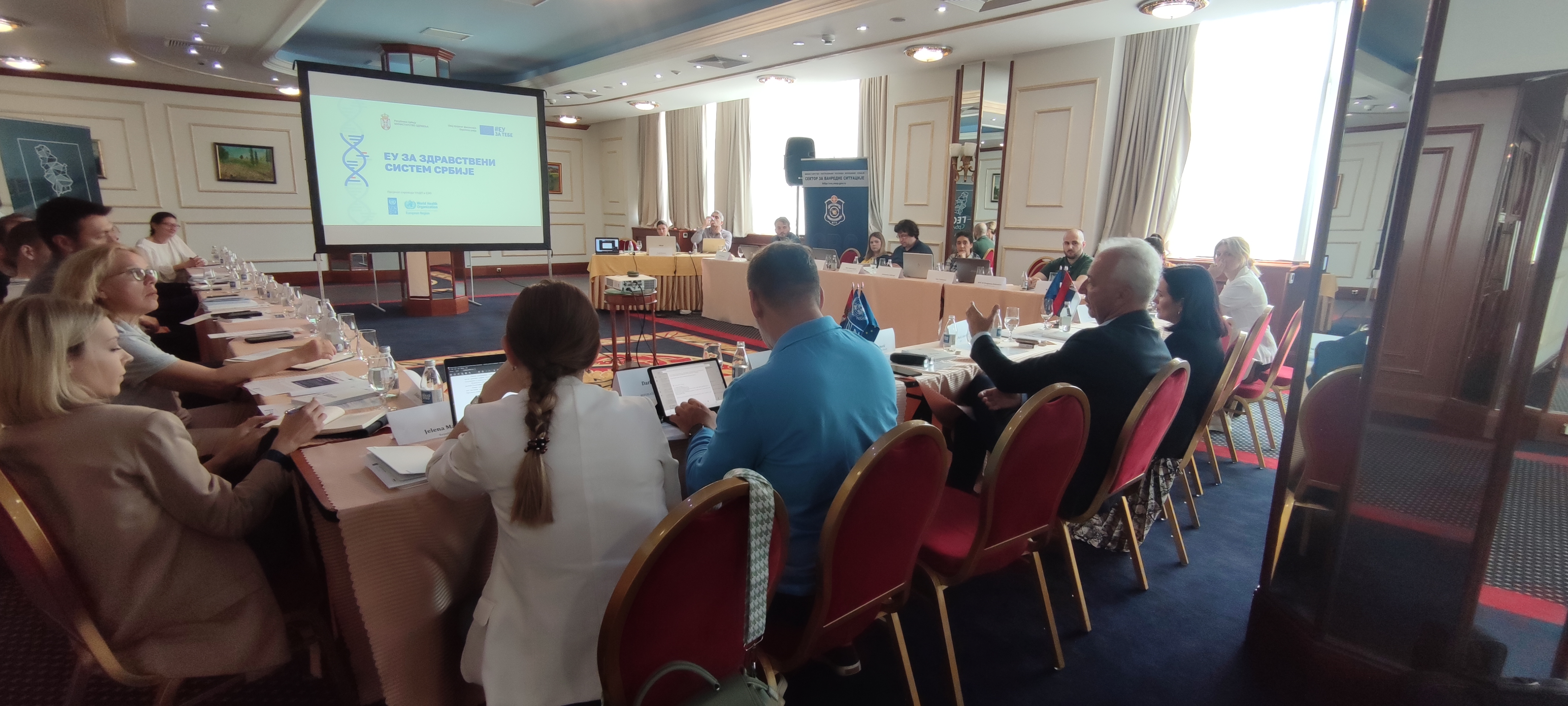Innovative public health risk management in Serbia
With the support of the European Union, the Ministry of Interior – Sector for Emergency Management
(SEM) and United Nations Development Programme (UNDP), organized the 6th meeting
of the Working Group for the development of the Disaster Risk Register on 2
March 2023 in UN House in Belgrade. This meeting signalled the launch of the
upgrade of the Disaster Risk Register of Serbia to include public health risks
in this platform. The Working group is composed of representatives of relevant
institutions risk data proprietors of relevance for the Register in line with
the National Risk Assessment, and the Ministry of Health (MoH) is the key
partner in acquisition, analysis as well as presentation of data on health
risks.

The Risk Register health upgrade encompasses advancement of the
information infrastructure and digitizing the data of importance to the public
health system and its response in crisis which pose danger to the health of
citizens of the Republic of Serbia.

In cooperation with the SEM and the Republic Geodetic
Authority (RGA), UNDP technically supports the upgrade of the Register through
coordinating needs assessment, ensuring stakeholders engagement and
institutional interactions, upgrading software performances and adding
additional functionalities and sub-components, data exchange services, improving
user friendly design, advanced processing and analytics of health-related risks,
and clear and to the point presentation of information and reporting. In
addition, UNDP coordinates and supports the process of data acquisition and
capacitating platform managers, data providers, and end-users to prepare,
upload, integrate, publish and share data, as well as to utilize the Register’s
information and its digital analytical tools as in every day planning and
implementation of preventive measures as well as in emergency response to situations
posing threats to public health.
UNDP in cooperation with SEM, RGA and MoH on 5 and 6 June 2023, organized a two-day Workshopin Arandjelovac to establish sub-groups of national authorities’ representatives per specific hazards, review all available datasets, their type, format and frequency of updates. The workshop identified and detailed the tasks of specific institution within their mandate, agreed the manner of usage, provision and exchange of data and information, and defined work plan and deadlines for task implementation. Besides, this was the opportunity to support MoH in assessing their needs in terms of georeferenced analytics for monitoring public health risks, and as well as to identify the needs and possibilities for creating a closed subsystem of the Risk Register exclusively intended for public health institutions. UNDP and RGA continue providing support to public authorities in clarifying the technical requirements of the Register, analysing existing services, identification of potential data and ICT issues and proposing solutions and recommendations for action to enable adequate data exchange.

Upgraded Register will booster risk informed decision making
in case of pandemic and epidemics, as well as eliminating or reducing risks to
public health in case of natural or man-made disasters with major health
implications such as torrential floods, air and water quality, wastewater
treatment, regional, unsanitary, mining waste and tailing landfills, the import,
storage, and traffic of hazardous chemicals, technological accidents, energy
facilities and major accidents hazards, radiation, protected areas of nature, food
safety, animal and plant diseases as well as harmful plant pathogens.

When the upgrade is finalized, the Register will contain
information and sound analytics on exposure and risk susceptibility for
effective and efficient monitoring of public health situations occurring in any
given territory of Serbia, mitigating potential outbreaks, observing historical
aspects of communicable and non-communicable diseases, pin-point existing infrastructure,
equipment, and human response capacities, and devise, plan and implement health
risk reduction measures. The World Health Organization (WHO) methodology STAR
(Strategic Tool for the Analysis of Risks) software shall also be embedded in
the Register providing accountable public health risk assessment based on the
data from national authorities.
Health upgrade of the Disaster Risk Register is being developed within the initiative ‘EU for Enabling a More Responsive Healthcare System’ in the Republic of Serbia implemented jointly by UNDP and WHO, with the financial support of the European Union.
The Disaster Risk Register was initially developed and established in 2022 within the initiative the ‘EU for Serbia Resilient to Disasters’ and operates as a subsystem of the national geospatial data infrastructure system representing an innovative tool for managing risks, risk-informed response and investment planning, safety and sustainable development. It is used by the public authorities involved in the National Disaster Risk Reduction System, and is available to a wider public. More about the Disaster Risk Register at the following links:
International DRR Conference in Belgrade, October 2022
Serbia gets Disaster Risk Register, October 2022
Disaster Risk Register at Dubai Expo 2021


